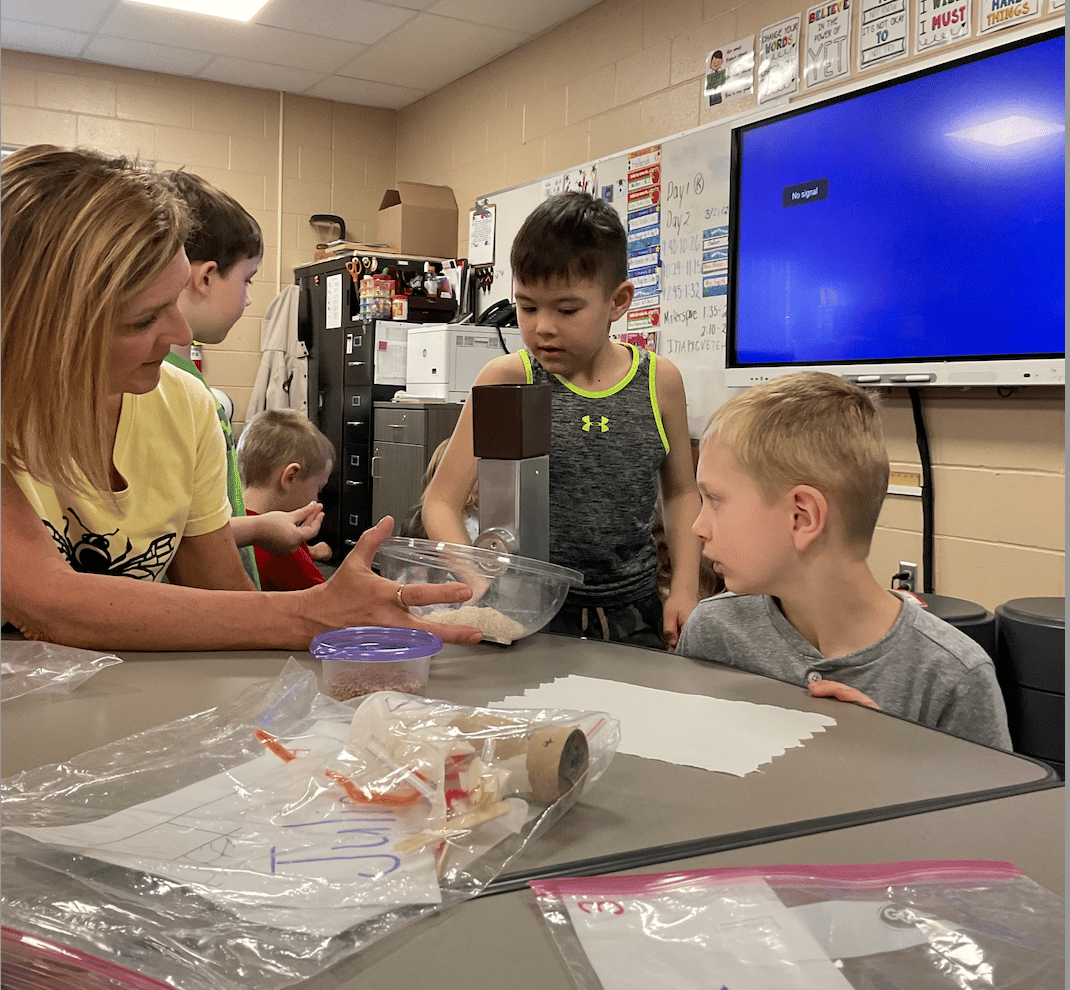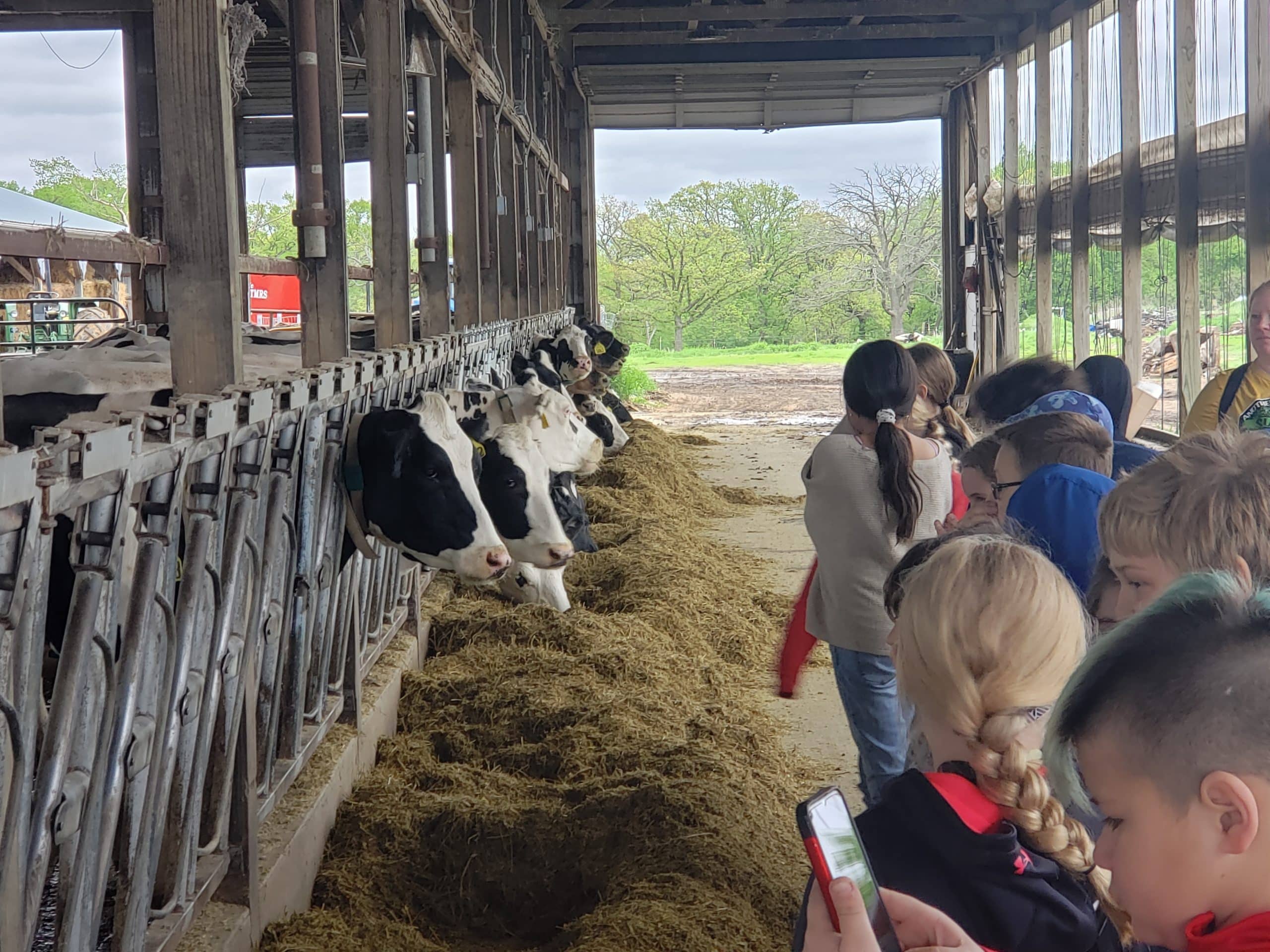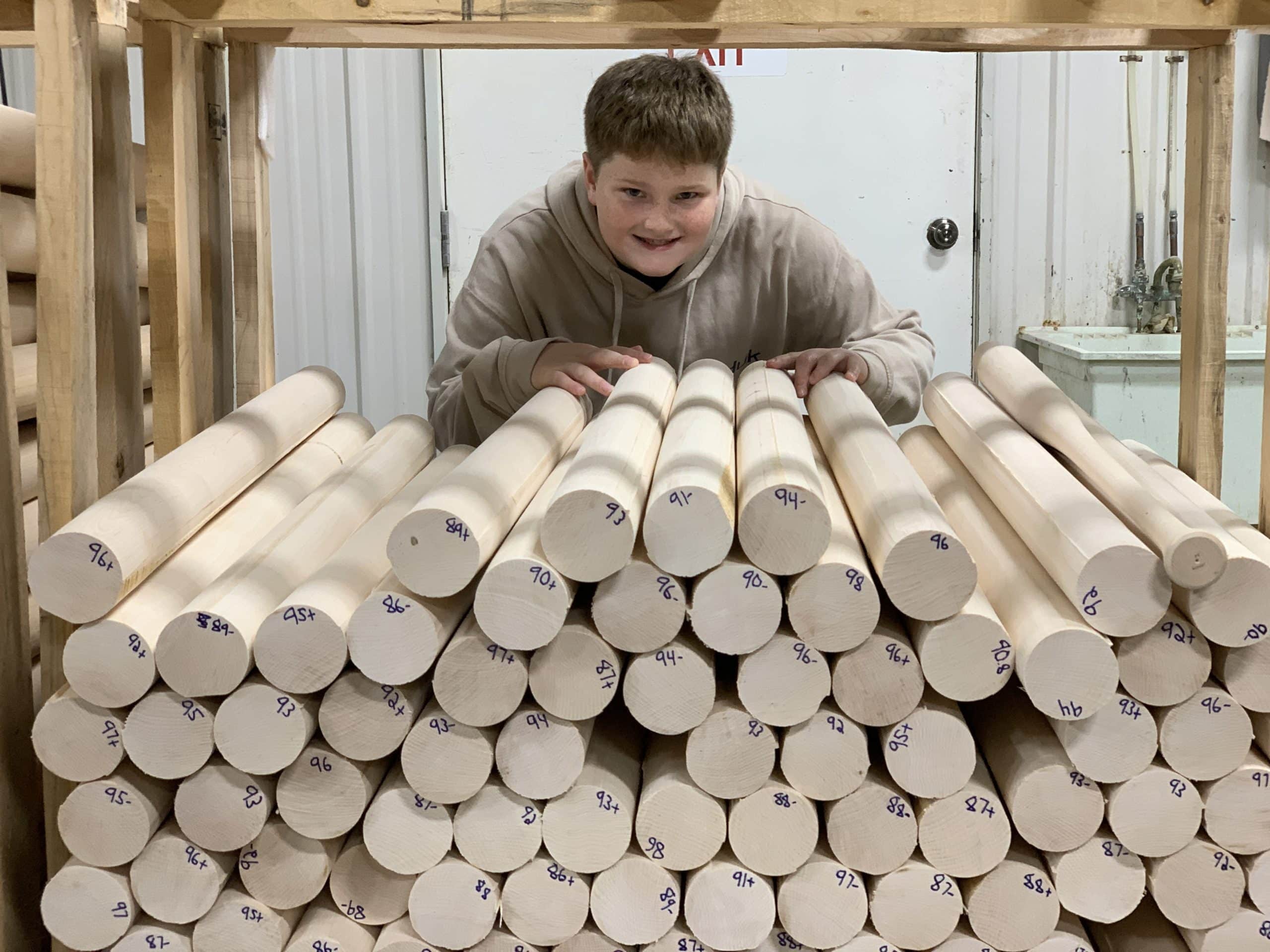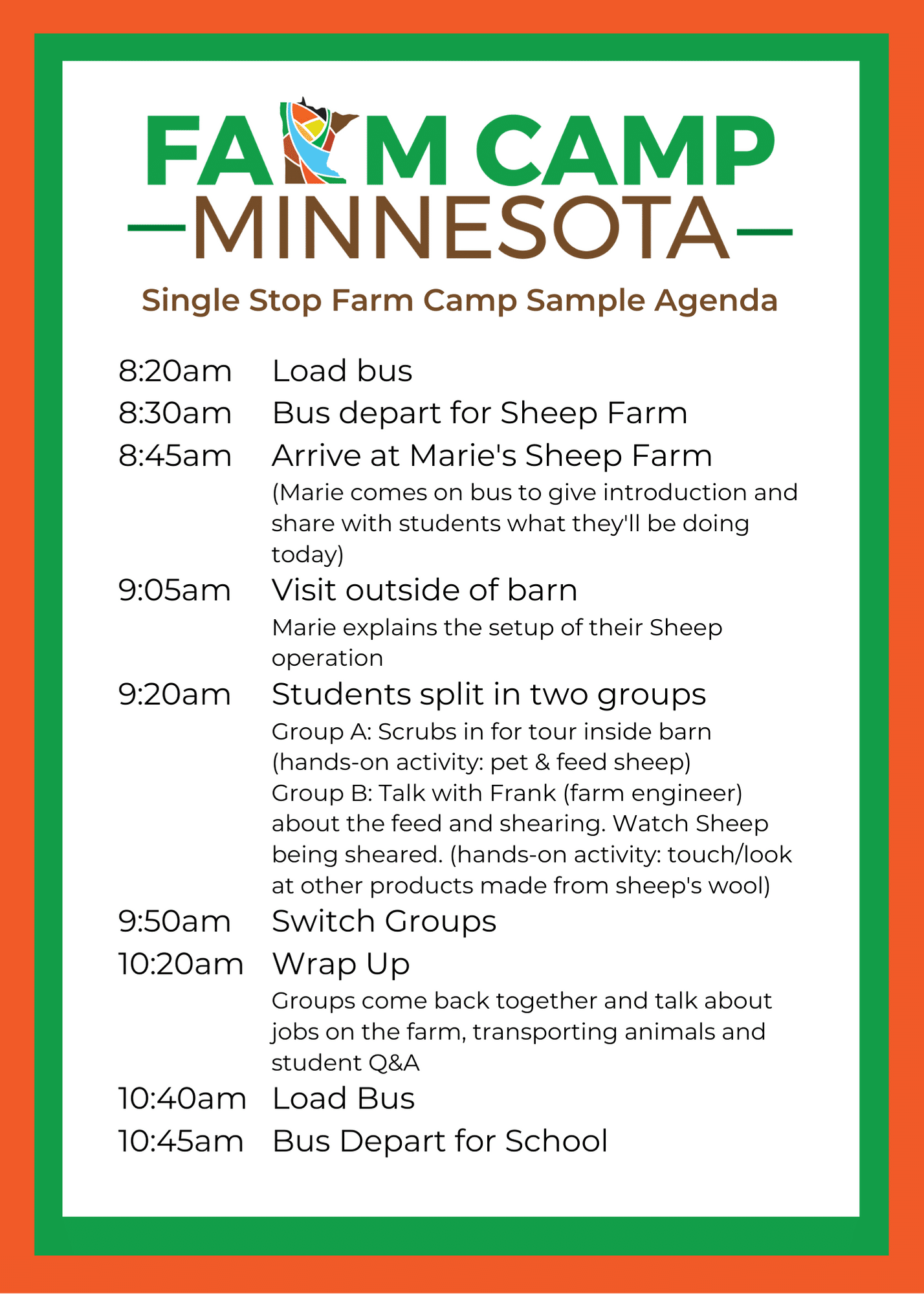
IN CLASSROOM
LEARNING
Farm Camps start in your classroom. We help you match up what you are learning about to the curriculum matrix that is age appropriate and relevant to what you are going to see on the farm.
How it works?
We don't just send you a link and leave you to your own devices. Once you connect with our Farm Camp Director, they hand select standards-based curriculum to bridge the gap between what your students are currently learning in the classroom and your on farm or agribusiness visit.
HANDS ON
FARM CAMPS
It's more than just a field trip. The Hands On component to a Farm Camp solidifies and reinforces the information that you are teaching in your classroom with experiences that your students can touch, feel and smell.
The Hands On component can include a single stop or multiple stop at a variety of farms or agribusinesses.
Types of Farm Camps
For the second part of a Farm Camp (hands on), there are 3 unique options to choose from for your Farm Camp experience. Learn more below about the differences between these opportunities, select which option works best for your classrooms’ needs, and connect with our Program Director to begin setting up your experience.
A Single Stop Farm Camp is a personal on-farm experience for a K-12 classroom. This does not require a coordinator. An Ag Host and an Educator connect to bring a classroom out to the farm.
We provide customized, standards-based lesson plans for the Educator to implement in the classroom prior to going out to the farm. These lessons help students prepare for what they'll see or experience on the farm. When your Farm Camp is fully registered, you receive resources such as permission slips, agenda templates, and evaluations. In addition, Ag Hosts receive access to resources that help prepare them for talking with students and support after the Farm Camp to continue to share the agricultural message.
A Single Stop Farm Camp comes in many shapes and sizes but here's an example of what one could look like!
A Farm Camp Field Day is a larger scale on-farm experience involving multiple classrooms and multiple Ag Hosts and maybe even multiple schools!
There are three types of Farm Camp Field Days:
- Single Location Field Day
Ag Hosts meet the students at one location and students rotate around stations to hear from multiple Ag Hosts - Multiple Location Field Day
Ag Hosts meet the students at one location (AM/PM) and students rotate around stations to hear from multiple Ag Hosts and then students go on a bus tour (AM/PM) to see different types of farms/agribusinesses - Bus Tour
Students tour multiple farms/agribusiness by traveling by bus to each stop
A Field Day requires a coordinator to put the event together. This could be an educator, Ag Host, Ag organization or business, etc. Farm Camp provides dynamite resources for the coordinator to create a successful, engaging event.
A Virtual Farm Camp is a customized virtual event for a 5-12 classroom. An Ag Host connects with an Educator to create a virtual experience for the students.
We provide customized, standards-based lesson plans for the Educator to implement in the classroom prior to going out to the farm. These lessons help students prepare for what they'll see or experience during the virtual tour. When your Farm Camp is fully registered, you receive resources such as virtual tour tips, best practices for engaging students, and evaluations. In addition, Ag Hosts receive access to resources that help prepare them for sharing their farm with students and support after the Farm Camp to continue to share the agricultural message.
AG CAREER
EXPLORATION
Your Farm Camp experience is wrapped up with career exploration. This may be an in-classroom lesson, an outside speaker, or an interactive career exploration activity. Careers in agriculture feature a wide variety of opportunities beyond on the farm. Educators will receive lessons, videos and other resources to help connect students with what they say in their hands on experience to possible careers in the agricultural field.


Get kids out to the farm!
Agriculture is all around us. It's the food, fiber and fuel that makes the world go round but students don't know where these things come from. This is why it's so important for them to get out to the farm!
Educator Beth Sletta shares why it's important to teach using agriculture as a common language.


